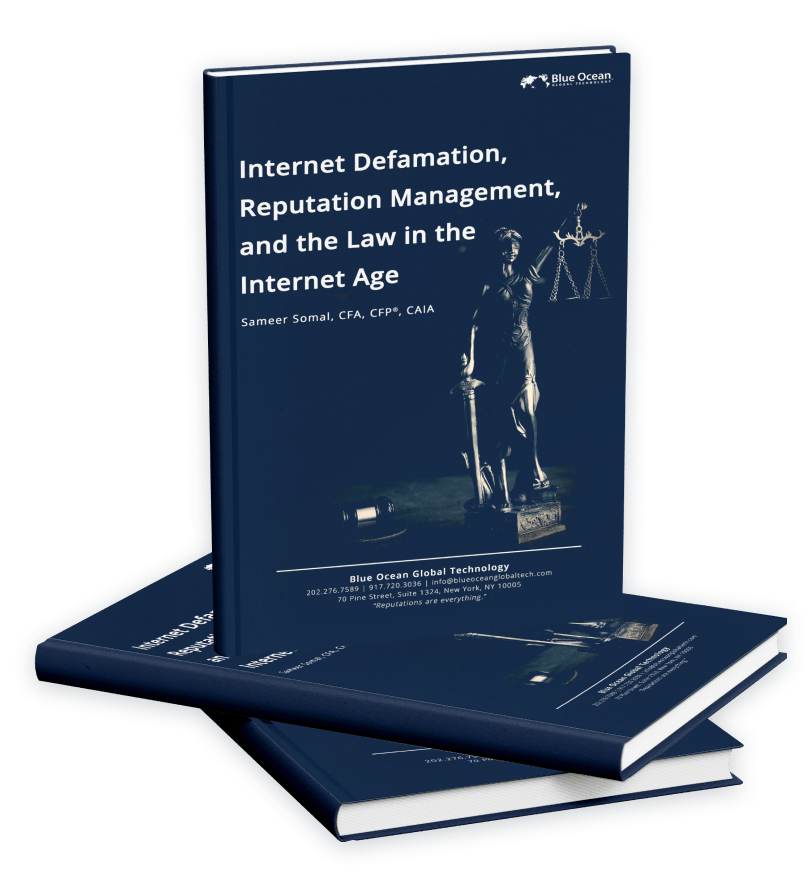The Components of Internet Defamation
For a tort of cyber defamation to be valid, all the following constituent elements of defamation must be present:
- The published statement is a false statement presented as a statement of fact.
- The statement is published online (i.e., communicated to a third party online).
- The false statement harms the plaintiff’s reputation.
- The false statement is made without due diligence.
- Proof of malice exists (in cases that involve those in the public eye).
Strategies for Dealing with an Internet Defamation Suit and How an Expert Witness Can Help
We approach internet defamation cases from the perspective of both the plaintiff and the defendant. Internet defamation cases are extremely complex. They can be won with evidence, research, and thoughtful arguments. Before contacting an attorney, a party should carefully analyze the statement(s) or content in question, and then consider whether it is defensible as truth, innocent dissemination, opinion, fair comment privileges, absolute privilege, or authorized content. The plaintiff can either file a lawsuit or attempt to resolve the situation without litigation. Before filing a lawsuit, the plaintiff should consider the potential Streisand Effect; the time, money, and energy required; and the difficulty of identifying the defamer. Non-legal options for protecting one’s reputation include ignoring the statement, asking the poster to remove the content, responding to the statement publicly, initiating a cyber-investigation, and hiring an online reputation management firm.
Hiring an expert witness in a defamation matter that has or could escalate to the point of litigation can be advantageous. The expert can provide an objective and qualified opinion to the court and/or offer technical subject matter expertise in support of the case. Their testimony will often assist the jury in reaching an appropriate decision based on the evidence.
Conclusion
Defamation is a serious issue that can adversely impact one’s reputation and directly compromise opportunities. Understanding the legal options, parameters, and case laws involved in defamation can help you navigate these situations and make the most informed decisions. Enlisting an expert witness or reputation management services firm can help you resolve such issues.
Our online identity has real-world consequences. We must proactively protect our reputation and, where possible, avoid defamation.

